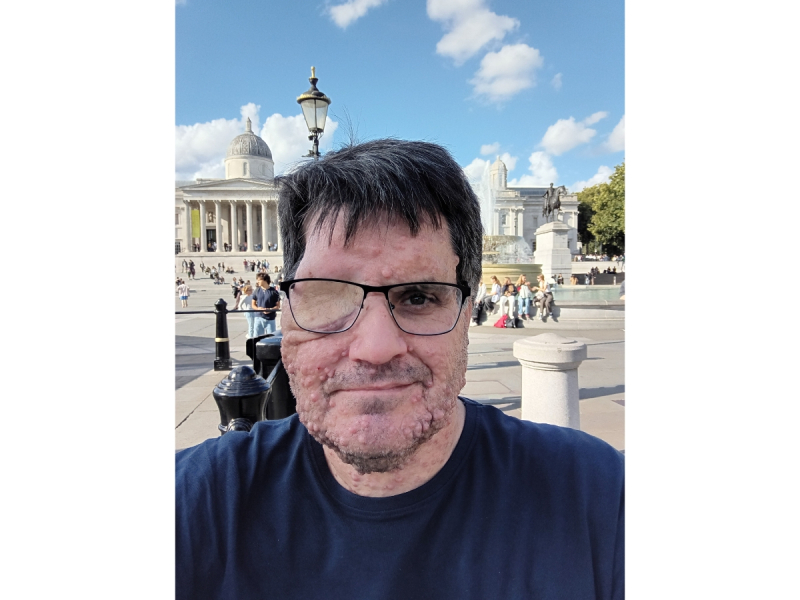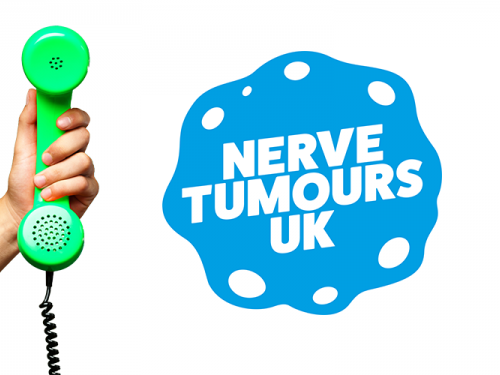Oliver’s Blog
19 June 2025
Oliver Bromley is a speaker, writer and proud NF warrior living in the UK. Born in South Africa, he has had dozens of surgeries due to Neurofibromatosis - and still manages to find humour, hope, and meaning in life. A passionate advocate for kindness, faith and awareness ; OIiver shares his journey to encourage others living with NF, disability and visible differences. His endearing motto is "BE KIND".


January 2026
A New Year with NF: Hope without the pressure.
January has an annoying habit of arriving loudly and boldly just when you are winding down to the end of the previous year and getting too used to all the good food. Before you know it, it is time to get back to your "normal" lives and routines.
New resolutions, new diets, gym memberships, well intended plans to be a "better" version of ourselves see us spending the first few weeks of January enthused to do better and be better, but...
When you live with nerve tumours or a long-term condition, January can feel, well... complicated.
Because while the calendar changes overnight, our bodies do not always get the memo.
Pain doesn't reset at midnight.
Scans do not disappear just because it is the new year.
Fatigue doesn't politely wait until February.
And that's OKAY.
For many of us in the NF Community, simply making it into January is an achievement in itself. Another year navigated with hospital appointments, uncertainty, resilience and courage (often quietly) goes unseen.
I have learned that hope doesn't always look like dramatic change, sometimes it looks like:
- Getting through a difficult appointment
- Laughing on a bad pain day
- Asking for help (and accepting it)
- Resting without guilt
- Choosing kindness towards yourself
That kind of hope doesn't need a resolution list.
As we step into this new year, it is worth remembering that progress isn't measured by how much we transform, but by how we continue. How we endure. How we support one another.
If 2026 brings improvement, we welcome it. If it brings challenges, we face them together.
To everyone affected by NF, you are not alone. You are enough. You are not failing. Take one day at a time!
All the best for 2026!
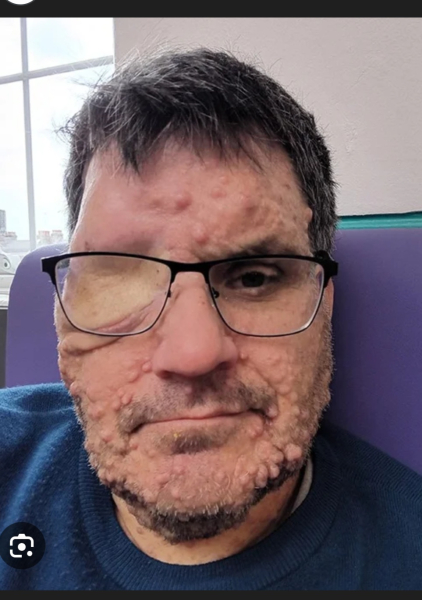
Living with NF can sometimes feel like that too, with its unpredictability, its messiness and the fact that it does not always play by the rules.
photo credit Martina Holmberg
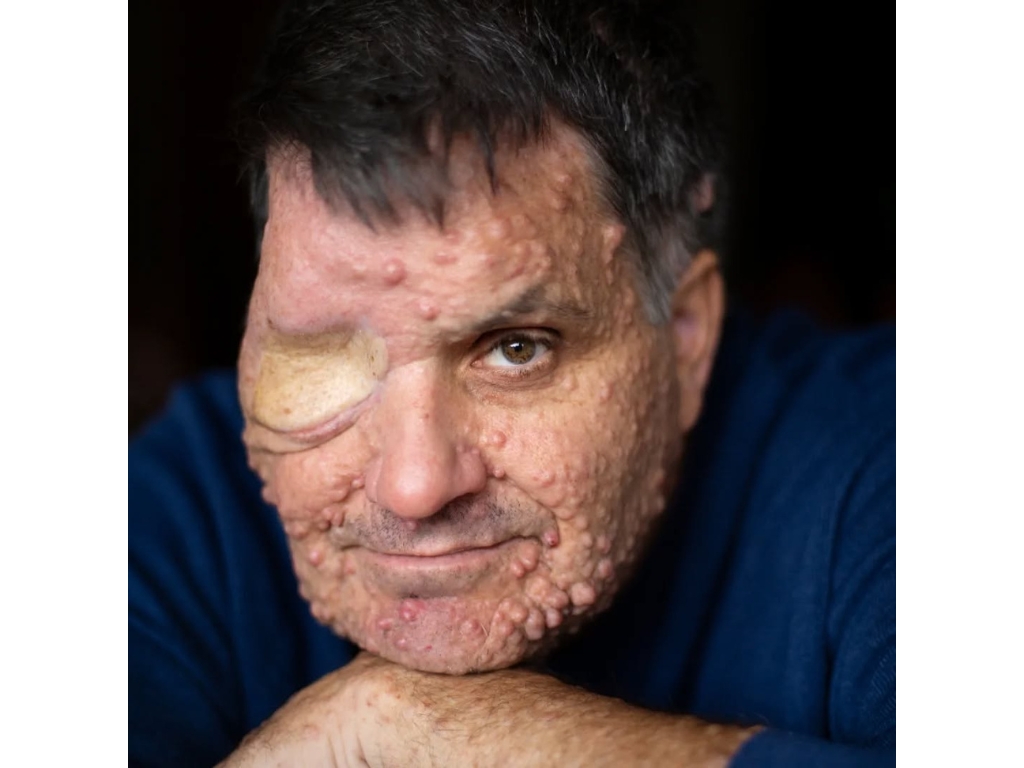
If there is one thing I have learned, it is this: stability isn't always about what's happening around us, but what we can hold onto inside of us. I can't control the weather (in October, or in life), but I can choose how to respond. Some days that means laughing at the chaos. Other days, it means admitting that it is hard, and then reminding myself that every wildfire eventually burns out and every storm passes.
What keeps me steady?
Someone to love
My family grounds me. My wife, Mom and wider family, have for the longest time, been my anchor through the storms of life.
Community matters, I would advise everyone to reach out to their support network who will sustain you and keep you going.
photo credit Martina Holmberg
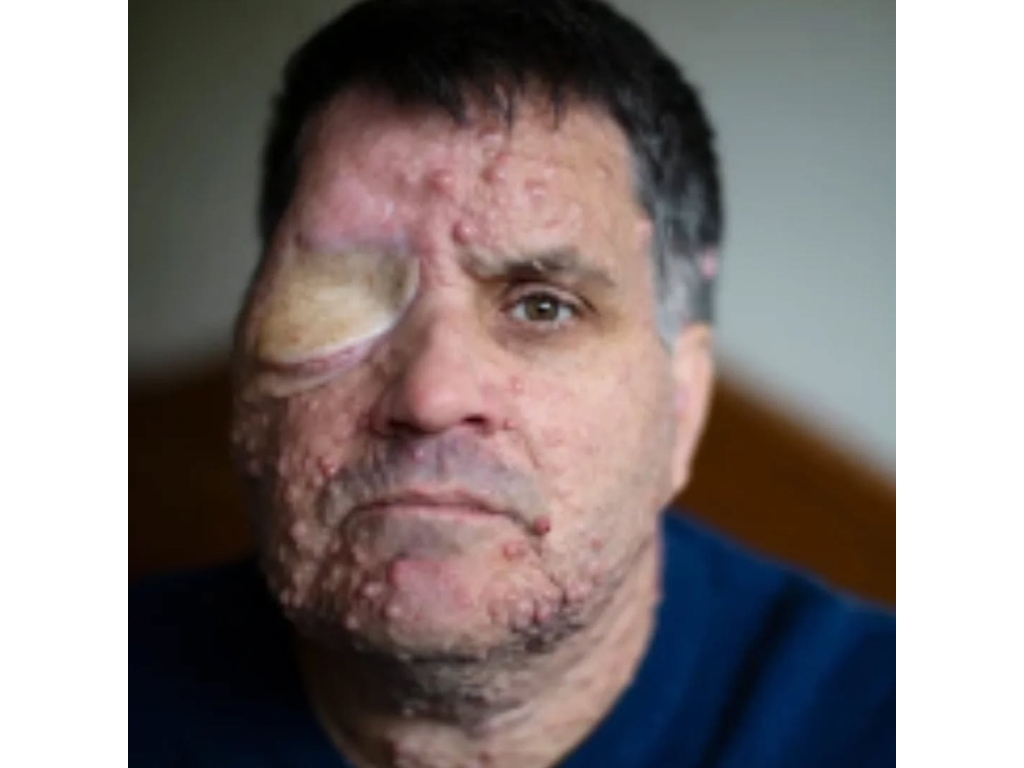
Something to do
Working in the NHS gives me a sense of purpose. I believe that we can all get through anything when we find meaning and purpose in our suffering. I have been incredibly fortunate to have spent the last seven years working in the field of Mental Health. Some days it is incredibly challenging, but standing with people as they navigate their storms has been an honour and a privilege and it has allowed me to reflect on my own journey and I now realise that all my challenges have been worthwhile, if only if it means I can relate to and support others.
Something to hope in and look forward to
My faith grounds me. It has been the cornerstone of my life. The Proverbs tell us that: "Hope deferred makes the heart grow sick." It is my belief that we all need something to believe in and to hope for. It is incredibly important that I look beyond my own temporal mortality to something bigger.
Uncertainty does not always shrink when we fight it. Sometimes, the trick is learning to dance with it and to find rhythm in the wobble. And who knows? That dance might even surprise you with moments of unexpected joy.
So, this October, when the days grow darker and the nights colder, I am reminding you and me that uncertainty is not the end of the story. It's just part of the chapter we're in. And chapters always turn.
September 2025
September is a month of change, the air cools, leaves start to fall and we are reminded that every season brings its own challenges and beauty.
For those of us living with nerve tumours, change is something that we know all too well. Our bodies change. Our routines change. Sometimes our confidence takes a knock. But what doesn't change is the inner strength we can find when we need it most, I call that resilience.
Resilience is not about pretending everything is ok. It is not about wearing a mask and denying pain, fear or frustration. It is about learning to keep moving forward, even when the path looks different than the one we imagined. For some people, resilience is about getting up after surgery and taking those shaky first steps. For others, it is about learning how to handle the stares, the curious glances and the questions with grace and dignity. And sometimes, it's about simply allowing ourselves a day to rest, and then trying again tomorrow.
Living with NF often means facing uncertainty, about our health, about treatments, about the future and the unknown. But it also means we learn to adapt, to find humour in the unexpected, and to value small victories.
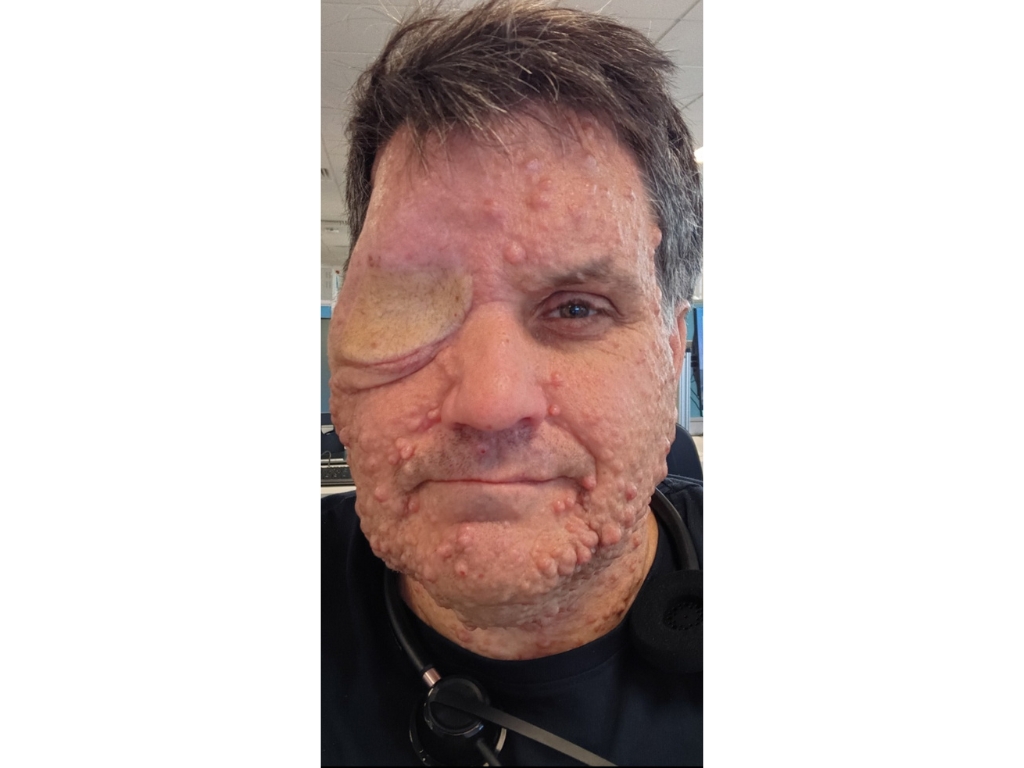
Resilience grows in those moments. It grows when we lean on each other, when we share our stories, and when we remind ourselves that we are more than our diagnosis.
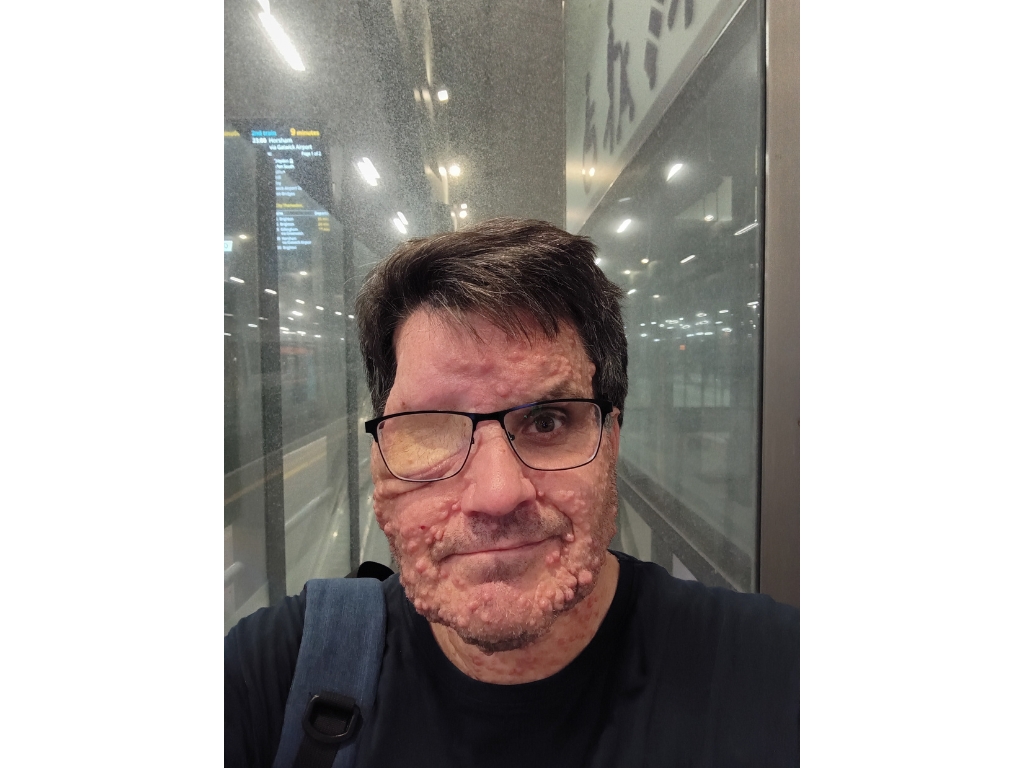
This month, as we focus on resilience, let's celebrate the quiet strength in our community. Whether your resilience looks like climbing mountains or just getting through the week, one day at a time, it matters. It inspires. And it shows that while NF may shape our lives, it does not define our spirit.
Resilience is not about bouncing back, it is about moving forward, step by step, in our own way.
_3_800_600_s.jpg)
We live in a world obsessed with reflections, not the deep and thoughtful kind, but the glossy, filtered, Instagramable sort. Everywhere you turn, there is an image being polished, perfected and promoted. But what happens when your appearance doesn’t fit or when your reflection tells a different, “uncomfortable” story?
For those of us living with visible differences, whether caused by nerve tumours like NF or any other condition, every trip to the supermarket, every ride on the bus, even every selfie can feel like stepping into a world that has forgotten to act with kindness.
Perseverance isn’t just about pushing through the pain. Sometimes it is walking into a room and holding your head high, even as heads turn or whispers follow you, when children point and stare or eating establishments turn you away. It is about showing up again and again, to work, to dates, to life, even when part of you wants to hide away. It is about choosing to see value in yourself when society tells you otherwise.
–"Beauty is not about symmetry or smooth skin. It is about courage, compassion and character and the NF community has this in abundance."
But here’s the thing I have come to learn: Visible Difference does not mean Invisible Worth.
We are not here to conform to someone else’s lens of beauty; we are here to challenge it. We are here to bring humanity back into the frame. You see, beauty is not about symmetry or smooth skin. It is about courage, compassion and character and the NF community has this in abundance.
And yes, there are tough days. There are moments when stares hurt more than words, and when mirrors feel more like measuring tapes than reflections. But I have always seen joy in unexpected places, a child who smiles not out of fear, but curiosity. A stranger who chooses connection over judgement. A comment online that says, “Thank you, you made me feel less alone because of your story”
"We are not here to conform to someone else’s lens of beauty; we are here to challenge it."
_3_1024_768_s_c1.jpg)
Hope is not passive. It is not wishful thinking. It is active. It is stubborn. It refuses to be dimmed. It is what gets us out of bed. It is our meaning, purpose and our core!
I write this not because I have it all figured out, far from it! I write this because I have been there, I have been the one on the outside, looking in. I have been excluded. I have been marginalised. I now show up and encourage others to do the same. I ask others to tell their stories so that our community can be heard. For, when we are not seen , we cannot be heard.
If you are reading this and are struggling to feel seen, heard or accepted, please do not give up. You are not a mistake. You are not alone, and you are so much more than what the mirror reflects. Keep going. Keep showing up. The world needs more of you, it needs you, exactly as you are!
I am Oliver Bromley, reminding you all to be kind!
_2_800_600_s.jpg)
July 2025
The Power of Storytelling
"The only way to bear the unbearable, is to tell it!" - Antjie Krog, South African author.
These words, taken from the book 'The Country of My Skull' resonate with me. I have always believed that stories have the power to heal.
Not in a magical sense, or in their ability to remove scars, but in the way they help us carry them. Stories make us feel seen. They shine a light on our darkest corners and remind us that we’re not alone in them. When you live with a chronic illness, that light can be everything.
My story matters, your story matters, our stories matter. I believe that if you just tell one person your story, you do not know what a huge impact it will have. I have learnt this first hand. In the last month alone, I have been very fortunate to have told my story to half a million people through my social media posts, the podcasts I have been a part of and through the fantastic medium of radio.
_716_600_s.jpg)
Growing up with NF in South Africa, my life was shaped by the presence of a visible difference. I had surgeries before I understood what the word even meant. I’ve seen how people stare. I’ve heard the whispers, felt the sting of rejection and I have even been turned away from a restaurant because of how I look. But I’ve also experienced the strength that comes when you choose to tell your story anyway.
Telling my story hasn’t always been easy. In fact, it’s been one of the hardest things I’ve done. But it’s also been one of the most freeing. Because once I began to speak openly, to share the reality of life with nerve tumours, something shifted. People started listening. Not just to the condition, but to the human behind it. Once I hid away, now I speak to literally millions. There is power in that.
Our stories humanise. They make us more than statistics, more than symptoms. They create space for empathy, for understanding, for connection. And connection is what drives change. We all need to be that change.
– Oliver Bromley"Vulnerability isn’t weakness. It’s a kind of quiet courage."
Through writing, speaking, and simply showing up as I am, I’ve learned that vulnerability isn’t weakness. It’s a kind of quiet courage. And every time someone reads a blog post, watches a video, or stops me in the street to say, “Thank you for sharing what you’ve been through,” it reinforces why I keep doing it.
Just the other day, through one of my videos described by a follower as "inspirational", I was part of literally saving someone's life. Having watched one of my Instagram videos, someone reached out to me to say that they were now no longer considering ending their life. That was a rubicon moment for me. I now feel I will not keep quiet, there is no going back from here!
Neurofibromatosis isn’t easy. But through storytelling, we reclaim a bit of power in a world that often overlooks us. We get to rewrite the script, change the narrative, remove stigmas and debunk myths. This is so powerful!
This month, I want to encourage anyone reading this to reflect on their own story. You don’t need a platform or a microphone. Just the willingness to share, even with one person. You never know who might need to hear it.
Stories don’t change our pasts, but they can shape our future. And for those of us navigating the unpredictable path of NF, that’s a future worth writing.
Call to Action
If this post resonated with you, please consider following Nerve Tumours UK to stay informed, uplifted, and connected. Support the incredible work they do, and most importantly to share your own story. Whether it’s big or small, joyful or painful, your voice matters. Let’s keep speaking, keep listening and challenging society to be kinder.
I have spent the last year telling my story on various different platforms. Finding my voice and the confidence to advocate for the joint communities of people living with NF and Visible Differences has been a life enriching experience. There have been many heartfelt conversations along the way. Many outstanding broadcasters stand out, but none more so than Amit Ghose. He is a man of many talents, chief of which is his incredible empathy, his amazing insights and incredible wit. I commend Unscripted to you all.
_2_800_600_s.jpg)
What I wish I knew when I was 10
When I was a child , the world was a pretty big and confusing place. I thought hospitals were just a part of life, everyone's life. I didn't understand the stares and the curious glances. I thought I was the only one. Now that I am 43, I know better. And I wish I could sit with that 10-year-old- boy and tell him the following:
1) You are not a mistake
Although biology may suggest otherwise, you were made to stand out, to be different. You are here for a reason. There is nothing broken about you, not even close.
2) People stare because they do not understand
You are not ugly or weird. Most of them just haven't seen someone who looks like you before - but they are about to. And maybe, one day, they will remember you and will treat the next person like you with kindness and compassion. Help to teach them kindness.
3) Your scars will tell stories one day
Right now you are in pain, you hurt , and you feel left out in the School playground. One day you will tell thousands your story, people will stand for you. You will be noticed . You are a superhero in the making. People will notice the courage where once you felt shame.
4) You will have good days, some really great ones.
There will be days when you will want to laugh so hard, you will forget your pain. Your family loves you, that is all that counts in this world, especially the new world of social media and fickle "likes" .There is someone special waiting for you, even if you do not feel it is possible right now.
5) Surgery will be hard, but this won't last forever
You will make it through every surgery. Even the ones when it feels like you will not. You are unbreakable, you are resilient.
6) You are allowed to be angry
You do not have to smile all the time, but it helps! Do it for yourself, do not feel that you always have to be brave for others. When you smile though, the whole world does smile with you. Remember to be kind to yourself, to take time to heal, to grieve and to rest.
7) Your condition doesn't define you - but it will shape you
And that is Okay. It will make you braver, more empathic, more creative. It will give you stories. It will help you to see beauty in ugly places. Remember to find beauty everywhere. It will teach you what really matters.
8) You are not alone
There are thousands of people out there with similar battles, fears , dreams and hopes for the future. One day you will speak for them. You will be the voice for the voiceless. You will make them laugh, cry and feel seen. You will matter! You do matter!
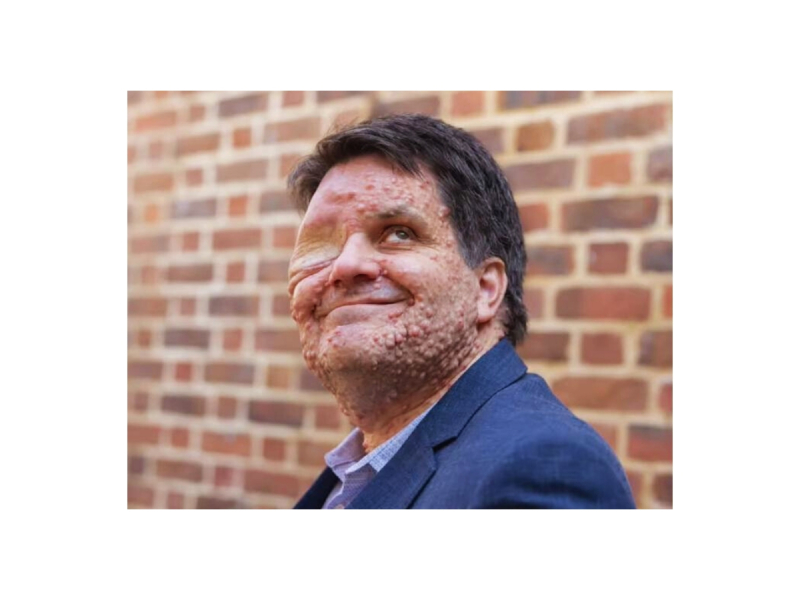
Why I speak up: Campaigning for fellow NF Warriors, creating awareness, building confidence.
People often ask me how I manage to speak so openly about Neurofibromatosis. It is often followed by a curious glance, awkward pause - or my personal favourite - "Is it contagious?" and "have you tried turmeric powder?". More on the (as I call them) 'lotion and potion' brigade later. I always say, when we know better, we do better. This is why I help to represent the NF community, I want to raise awareness, debunk myths and help to educate. I want to live in a world that is kinder to people with disabilities, one where stigma is removed, and one in which people with NF can go into a restaurant or a cafe without being mistreated.
–"I want to raise awareness, debunk myths and help to educate."
Welcome to my world.
I have Neurofibromatosis (NF), a condition that most people have never heard of, unless of course they have googled it at 2am after an unsettling diagnosis. It is a genetic condition that causes tumours to grow on nerves. Sounds scary I know, but what is more terrifying is living with something your whole life, and the whole world not knowing that it exists.
That is why I speak up!
Not for the attention, although I am rather fond of the roses on TikTok, but awareness changes everything. It affects how doctors treat us, how children get treated at school, how employment policies get drafted to support us and yes, how that little child in the supermarket sees us and reacts when they see all our lumps and bumps and are unsure whether to stare, ask, or chase us around the aisles, bringing attention to us by shouting at their Mother "look at that man!".
–" Awareness changes everything."
I speak up, so that no one ever has to face an unknowing world again. I have spoken on National TV, radio and for this wonderful charity; a community of champs. I want to show the world that despite my challenges, I have a life that is full and rich and blessed.
I am learning to turn tragedy into triumph. Pain into purpose.
If you are reading this and you want to campaign, but you feel you have lost your voice. Just start by telling one person your story! There is power in that.
Lastly , please stop telling people like me to try this or that cure, We have heard it all before, and, although we appreciate your well meaning suggestions, it often causes more pain .
Be kind everyone!
NF Awareness Month 2025

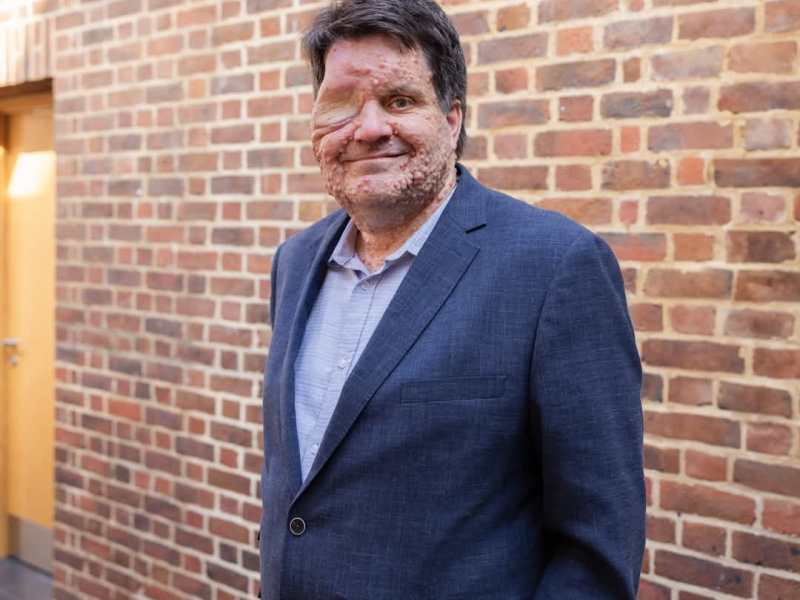
As we find ourselves in International NF Awareness Month, I have been thinking about all the fantastic work being done by advocacy charities such as Nerve Tumours UK. It has been heartening to meet so many fantastic individuals from the community who are standing up and sharing their stories. My own story shared with the International Media in the Summer of 2024 has allowed me to find my voice, to tell my story, and to advocate for those who can not speak up.
Here are some of the lessons that I have learnt.
When we know better, we do better
I have learnt that all too often people are acting from a place of ignorance. When I was chased away from the restaurant, I have often thought since then that perhaps the manager thought I was contagious. Reflecting back, I would love to have had an opportunity to turn that experience into a teaching moment. If I had known about NTUK then, I could have directed them to the resources which they provide, and we could have prevented it from happening again in that place. Unfortunately they did not respond, however, very fortunately, a really positive outcome was that the wider Hospitality network has been informed via Trading Standards about how to treat people with NF.
Be Kind
Earlier this month, I was chased around a supermarket by a rather boisterous child who was shouting at the top of his voice to his Mother "look at that man". Life is hard for people with Visible Differences. Most days I am OK with tolerating curious glances, stares and muffled utterances from some "well-meaning" people. But I am also only human, and some days after a hard days work, I am not always as tolerant. That said, I have had to learn to be kind too, as that Mother in the supermarket was probably also at the end of their tether and probably could have done without having to explain her child's "rude" behaviour away. We all need to be more kind. When we see someone acting out of character or in an intolerable way, we have no idea what contexts they are operating in, how hard their lives are. Do not make it worse.
Hope for the future
A very wise man once told me that we all need three things to get through life. We need something to do (my job supports people in the NHS and gives me meaning), someone to love (my family supports me) and something to look forward to (a holiday or something else exciting) These three things ground us, and give us purpose.
Have a lovely NF Month and remember: Be kind!
February 2025
World Rare Disease Day 2025
More than you can imagine - rare experiences - raise awareness for rare diseases
It is an enormous privilege to be able to share my story with the wider NF community and I am grateful to NTUK for continuing to raise the profile of NF. Our stories matter, it is how we build connection with others. Since being rejected from the restaurant in August 2024, I can see that the incident has had a positive ending. We have been able to reach out to the UK Hospitality network and have provided them with a highly effective toolkit to help them to do better when it comes to issues of equality and diversity in general and NF in particular. I look forward to the day when disability and particularly visible differences is normalised. The mission is very clear , when we know better , we do better!
January 2025
Reflections
People often ask me how I manage to remain so positive, despite living with such a challenging condition such as NF. Throughout my life I have probably had about 30 odd surgeries, including six major brain operations. At times the stress has been immense, the strain on my family enormous and although the future remains uncertain given the nature of the illness, I have one or two very valuable lessons, and I hope to use this platform to pass this "wisdom" on and in so doing help them with their NF journey.
I have always been very inspired by those who have endured seemingly insurmountable odds, who have turned these bad experiences around and have used the lessons learnt to help others. Viktor Frankl is one such person. He was a renowned Austrian Neurologist, Psychologist, Philosopher and Holocaust survivor, who said the following: "Our willingness to choose will determine our ability to overcome obstacles and achieve our goals" . According to Frankl, we cannot choose what happens to us, but the greatest of all freedoms is how we choose to respond. No matter what we are facing in our relationships, our health, our careers, or whatever it is, we have the power to choose how to respond. No one person or situation has the power to “make” us react. We have that power!
–"No matter what we are facing in our relationships, our health, our careers, or whatever it is, we have the power to choose how to respond. No one person or situation has the power to “make” us react. We have that power!"
Frankl spent the second half of the Second World War in four concentration camps. Because of the horrors which he observed and personally experienced (he lost a few family members during one of history’s darkest moments), he took a great interest in his later professional life in the area of suffering. One of his most famous works “Man’s Search for Meaning” based on his theory of “Logotherapy”, proposes that one of mankind’s primary motivators is to find purpose and meaning. We can get through anything in life if we can turn it around for good and find a purpose for it. This has always resonated with me, and I have always found solace in the fact that my suffering has a higher purpose.
For most NF sufferers, each day is a struggle and sometimes there is no obvious medical treatment or cure, and this can add to the burden. Some feel they cannot go outside or fit in socially due to their appearance. Some experience nerve pain which makes daily life hard. No matter the challenge, I would encourage everyone to try and find that one thing that brings you meaning and purpose as you try and navigate your own NF journey.
I was recently the subject of a lot of media attention following an incident in London where I was asked to leave because of how I look. Despite this being a horrific thing to happen to anyone, with the help of Nerve Tumours UK, I am now able to use this platform to help and motivate others. So for me, that is how I have found meaning and purpose during this difficult time. I remain grateful to an incredibly supportive family, NTUK and everyone who has reached out to me for their support.
December 2024
My name is Oliver Bromley. I have Neurofibromatosis Type 1, this results in the formation of mostly benign tumours forming on the nerve endings, these present as little subcutaneous bumps under the skin. Sometimes, as was the case with me, larger plexi-form tumours develop and these result in gross disfigurement. We now call this visible or facial difference.
Those with a visible or facial difference experience a lot of discrimination, curious glances, and outright abuse from others. I have experienced awful treatment because of how I look. However, I have never allowed these experiences to make me bitter, and I hope to use this platform to inspire and motivate others living with NF, to help educate the wider public about NF, and hopefully help campaign and raise much needed funds for Nerve Tumours UK.
Living with NF is incredibly hard at times. I have had multiple major and minor surgeries, especially in the last few years, this causes untold stress on my family and I. It affects my work, my mental health and is always challenging.
I wanted to share two short stories to highlight some of the challenges that people with NF and visible differences face.
Story One
"Unfortunately, after careful consideration, we are unable to offer you a position within our organisation. We thoroughly enjoyed meeting you, and we think that although there is a very strong match between your experience and our requirements, you arrived early for your interview, and we believe that this shows very poor time management. We have therefore decided on this basis alone not to progress to the next round of the recruitment process". I took a step back, I couldn't believe what I had heard. It occurred to me on my tube ride home, that citing poor time management was clearly a convenient excuse and that the recruiter had been uncomfortable with how I look. Covert discrimination or so called micro-aggressions have been quite a common experience for me. You are told by others to "shake it off" or "be the better person." Mostly, that is sage advice, but it doesn't always take the sting out of it.
I would like to see things improve for people with NF. Part of the problem is that as a society we have yet to normalise visible differences. There has been very little representation in the mainstream media to date, so people are curious, and they stare.
When we know better, we do better, and I am grateful for charities such as Nerve Tumours UK who are doing fantastic work to address this and challenge the stigma.
Part of the problem is that as a society we have yet to normalise visible differences

Dec 2024
Story Two
"There have been complaints about you, please leave!" "Pardon?", I replied. "There have been complaints about you, you are scaring the customers, please leave!". Earlier this year, whilst an inpatient at Kings Hospital, I had grown tired of hospital food, and decided to go buy some lunch at a local eatery. I was turned away. The restaurant felt uncomfortable with my disability.
This time, my story managed to garner attention from national and international media outlets. I started appearing on TV and radio programmes and I was able to share my story, I could speak about life with NF, I could challenge the hospitality industry to do better. I was overwhelmed by the outpouring of support which I received in the form of letters and messages from all over the world. I hope we can build on this momentum and encourage people to do better, to be kind to others with NF, and encourage more allies for the community which I represent.
What can someone do when they see someone who doesn't look like them? Firstly, do not stare. This may seem obvious for some, but it still amazes me that not everyone has received that memo (as it were). I realise that most people are just curious, but it doesn't always help to be reminded on a daily basis that you look different.
–"What can someone do when they see someone who doesn't look like them? Firstly, do not stare. "
Secondly, if curious, and if appropriate, do ask questions once rapport has been established. Most people with NF are experts on their condition and who better to ask than them. Education is key. I do not think it is appropriate to go up to a stranger and ask "what happened to your eye?", but if you have established a relationship of sorts with someone, say for example a work colleage, then do ask, but only when the time is right. Sharing information is the only way we are going to get to a place where disability is normalised and the stigma is reduced.
People often ask me how I stay so positive and motivated. Well, I can say this is because of my strong faith, which grounds me, aswell as an incredibly supportive family and support network. I am grateful to all the incredible specialists in the NHS who have supported me these last few years and to charities such as Nerve Tumours UK, who tirelessly campaign for people like me, and to everyone that's reached out with messages of hope and encouragement. If I had to pick an enduring message to everyone it would be this, "be kind".
Oliver's story in the News: National and International Support
Man with disfigurement was told to ‘leave’ a restaurant due to his physical appearance
"I am very grateful for all the media attention, not just because it was fun being part of such an exciting industry and meeting some renowned journalists; it was a totally surreal experience. I am particularly grateful to Isabel Ramirez at the Southwark Newspaper who first rallied to my side and advocated for me. I would also like to mention the fantastic Sarah Jane at Sky News. All of these individuals were extremely kind to me, and took a real interest in the communities I represent. I have also had the great pleasure of being part of the PDA podcast. I hope that my story will lead to increasing acceptance and stop the injustice and discrimination towards everyone who has a visible difference."
Here are some of the links: Watch the coverage and see all the positive comments by the public:

